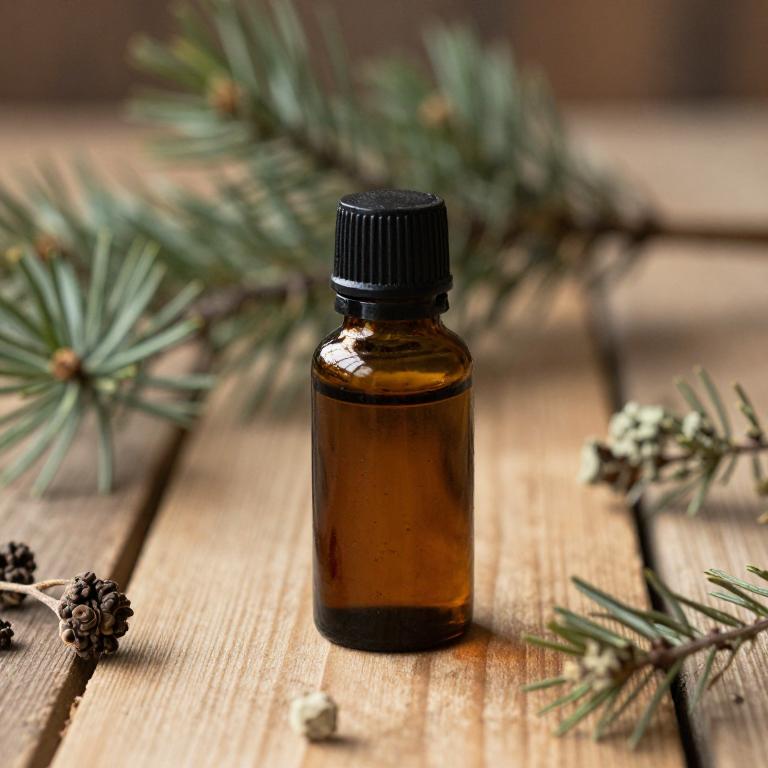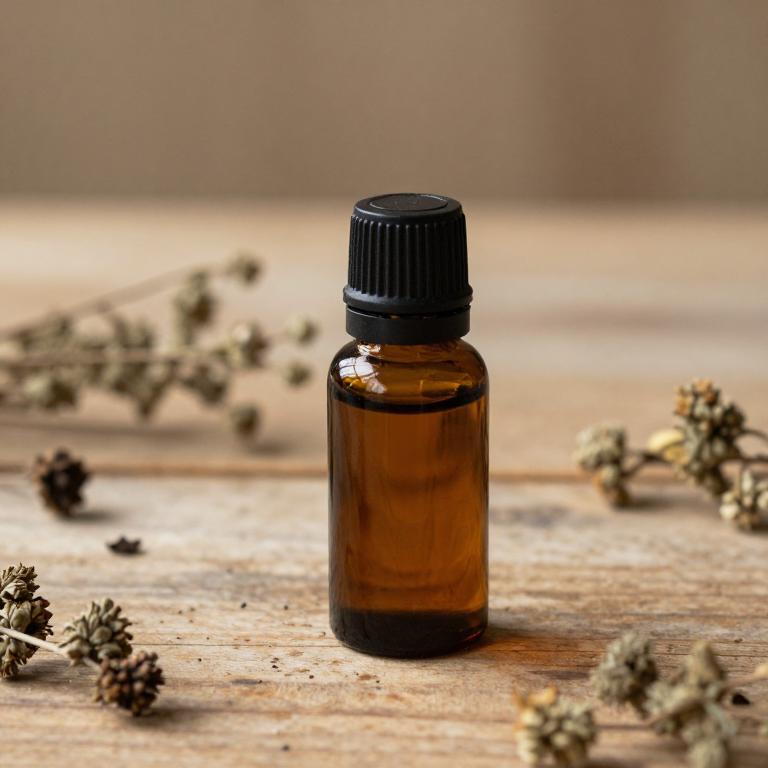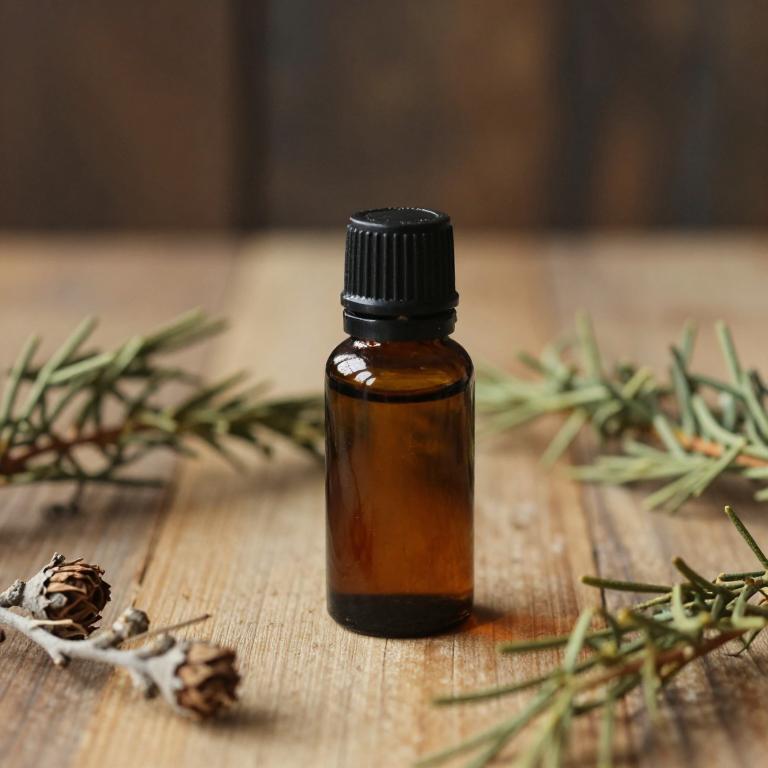10 Best Herbal Essential Oils For Tickling Throat

Herbal essential oils, such as eucalyptus, peppermint, and lavender, are often used to alleviate symptoms of a tickling throat due to their soothing and anti-inflammatory properties.
These oils can help reduce irritation and ease the sensation of a dry, scratchy throat by promoting respiratory comfort. When properly diluted with a carrier oil, they can be applied topically or inhaled through steam to provide relief. Some individuals find that inhaling these oils in a diffuser or adding them to a warm bath offers additional therapeutic benefits.
However, it is important to consult with a healthcare professional before using essential oils, especially for those with allergies or underlying health conditions.
Table of Contents
- 1. Eucalyptus (Eucalyptus globulus)
- 2. Scots pine (Pinus sylvestris)
- 3. Thyme (Thymus vulgaris)
- 4. English lavender (Lavandula angustifolia)
- 5. Peppermint (Mentha piperita)
- 6. Rosemary (Rosmarinus officinalis)
- 7. Melaleuca (Melaleuca alternifolia)
- 8. Citrus sinensis
- 9. Ceylon cinnamon (Cinnamomum zeylanicum)
- 10. Italian cypress (Cupressus sempervirens)
1. Eucalyptus (Eucalyptus globulus)

Eucalyptus globulus, commonly known as Australian eucalyptus, is a widely used plant in aromatherapy and herbal medicine due to its potent essential oil.
The oil contains high levels of 1,8-cineole, which has expectorant and decongestant properties, making it beneficial for respiratory health. When used for tickling throat, the essential oil can help alleviate irritation and loosen mucus, providing relief from coughing. It is often diluted with a carrier oil before application to the chest or inhaled through steam inhalation.
However, it should be used with caution, as it may cause skin irritation or allergic reactions in some individuals.
2. Scots pine (Pinus sylvestris)

Pinus sylvestris, commonly known as Scots pine, produces a herbal essential oil that is valued for its soothing and aromatic properties.
This essential oil is often used in aromatherapy to help alleviate symptoms such as a tickling throat, thanks to its anti-inflammatory and expectorant qualities. The fresh, woody, and slightly resinous scent of Scots pine oil can help open up the airways and ease respiratory discomfort. When inhaled through steam or diffused in the air, it may provide relief from persistent throat irritation and coughing.
However, it is important to use this essential oil with proper dilution and consult a healthcare professional before use, especially for those with respiratory conditions or allergies.
3. Thyme (Thymus vulgaris)

Thymus vulgaris, commonly known as thyme, is a popular herb used in aromatherapy and traditional medicine for its potent essential oils.
The essential oil of thymus vulgaris contains compounds like thymol and carvacrol, which have antimicrobial and anti-inflammatory properties. When used for tickling throat, inhaling the steam of thyme essential oil can help soothe irritation and reduce coughing by clearing nasal passages and easing respiratory discomfort. It is often diluted with a carrier oil before use to avoid skin irritation.
This natural remedy is favored for its refreshing aroma and potential to provide relief from mild throat irritation.
4. English lavender (Lavandula angustifolia)

Lavandula angustifolia, commonly known as English lavender, is renowned for its soothing and calming properties, making its essential oil a popular choice for respiratory relief.
When diffused or inhaled, the aromatic compounds in lavender essential oil can help ease a tickling throat by reducing inflammation and promoting relaxation of the airway muscles. Its antiseptic and anti-inflammatory properties may also help alleviate irritation and discomfort associated with minor throat ailments. However, it is important to dilute the essential oil properly before use and consult with a healthcare professional, especially for those with sensitive respiratory systems.
While lavender essential oil can be a natural remedy for a tickling throat, it should not replace medical advice or treatment for persistent or severe symptoms.
5. Peppermint (Mentha piperita)

Mentha piperita, commonly known as peppermint, is a popular herb whose essential oil is widely used for its cooling and soothing properties.
The essential oil of peppermint contains high concentrations of menthol, which can help alleviate the irritation and discomfort of a tickling throat by reducing inflammation and soothing the mucous membranes. When used in steam inhalation or as a gargle, peppermint essential oil can provide temporary relief from coughing and soreness in the throat. However, it is important to dilute the essential oil properly with a carrier oil to avoid skin irritation or adverse reactions.
Overall, peppermint essential oil can be a natural and effective remedy for easing the symptoms of a tickling throat when used safely and appropriately.
6. Rosemary (Rosmarinus officinalis)

Rosmarinus officinalis, commonly known as rosemary, is a versatile herb whose essential oil is widely used for its aromatic and therapeutic properties.
The essential oil of rosemary contains compounds such as camphor and pinene, which are known for their stimulating and decongestant effects. When used in steam inhalation or diluted in a carrier oil, rosemary essential oil can help soothe a tickling throat by reducing mucus buildup and easing respiratory discomfort. Its warming properties may also help to open up the airways and provide relief from coughing.
However, it is important to use rosemary essential oil with caution, as it can be irritating to some individuals and should always be diluted before topical application.
7. Melaleuca (Melaleuca alternifolia)

Melaleuca alternifolia, commonly known as tea tree oil, is a popular essential oil derived from the leaves of the Melaleuca alternifolia plant, native to Australia.
While it is widely recognized for its antimicrobial properties and use in treating skin infections, it is not typically recommended for tickling throat due to its strong, camphor-like aroma and potential irritant effects on the respiratory system. Instead, essential oils such as eucalyptus, peppermint, or lavender are more commonly used to soothe throat discomfort and alleviate tickling sensations. If someone is experiencing persistent throat irritation, it is advisable to consult a healthcare professional before using any essential oils.
Proper dilution and safe usage are crucial to avoid adverse reactions, especially when applying oils near the respiratory tract.
8. Citrus sinensis

Citrus sinensis, commonly known as sweet orange, is a citrus fruit whose essential oil is widely used in aromatherapy for its uplifting and calming properties.
The essential oil is derived from the peel of the fruit through cold pressing, resulting in a fragrant and versatile oil that can be used in various ways. When used for tickling the throat, citrus sinensis essential oil can help stimulate the respiratory system and provide a refreshing sensation, which may aid in clearing congestion. It is often diluted with a carrier oil before application to ensure safety and effectiveness.
This natural remedy is particularly favored for its gentle yet invigorating effects on the throat and respiratory system.
9. Ceylon cinnamon (Cinnamomum zeylanicum)

Cinnamomum zeylanicum, commonly known as cinnamon bark, is a source of aromatic essential oils that have been traditionally used for their therapeutic properties.
The essential oil derived from this plant contains compounds like cinnamaldehyde and eugenol, which possess anti-inflammatory and antimicrobial effects. When used in steam inhalation or diluted in a carrier oil, cinnamon essential oil can help soothe a tickling throat by reducing irritation and easing respiratory discomfort. Its warming and penetrating qualities make it particularly effective for alleviating symptoms of colds and sore throats.
However, it is important to use this oil with caution, as it can be irritating to the skin and should always be diluted before topical application.
10. Italian cypress (Cupressus sempervirens)

Cupressus sempervirens, also known as Mediterranean cypress, is a tree whose essential oil is valued for its aromatic and therapeutic properties.
The essential oil derived from its leaves and wood is known for its ability to provide relief for a tickling throat, often associated with coughing or respiratory discomfort. This oil contains compounds like pinene and camphor, which have expectorant and soothing effects on the respiratory system. When used in steam inhalations or diluted in a carrier oil for gentle massage, it can help ease irritation and promote clearer breathing.
However, it is important to use the oil with caution and consult a healthcare professional before use, especially for individuals with sensitive skin or underlying health conditions.